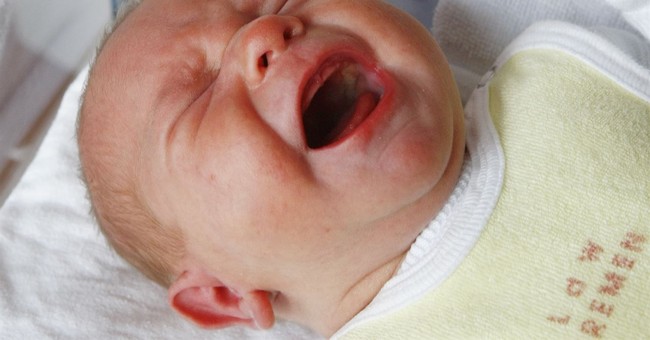As a proud South African, I am always conscious of our resilience, our ingenuity, and how we come together in adversity. But things are falling apart. Plagued by bereavement and job losses, betrayed by politicians and heads of institutions, and an ever-present fear of crime, trauma, and violence; our centre cannot hold.
Mental health awareness fills our radio talk shows and magazines. However, ignorance, discrimination, and outright abuse of people with mental illness prevail.
Think of the “Tembisa 10” story.
Only Social Development staff protected Ms Sithole’s right to privacy and referred her for mental healthcare. Healthcare providers were seemingly unaware of her need. Nando’s continues the abuse, with a mocking advert inferring she deliberately scammed others. That she has mental health issues is public knowledge. How lacking are we in insight and judgment?
Gross inhumanity towards people with mental illness occurs in our country at the institutional and individual levels. At institutional level, the most obvious is the “Life Esidimeni Tragedy”. At individual level, remember Jostina Sangweni, accused of witchcraft and brutally murdered earlier this year. Our mental health awareness clearly fails to protect people with psychosocial disability (psychosocial disability is used here to include people with mental and/or intellectual disability).
Population wellbeing and psychosocial disability
In 2020, South Africa ranked 103 out of 149 countries on the happiness index, a measure of population wellbeing derived from six factors: GDP per capita, social support, healthy life expectancy, personal freedom, the good will of others, and trust in government.
While demographic and other inequities are not reflected, it is likely that people with psychosocial disability fare the worst. Mental health conditions negatively impact wellbeing; they increase the risk of unemployment, social exclusion, poor physical health, shortened life expectancy, loss of autonomy and liberty, being a victim of violence, and government neglect.
Globally, the COVID-19 pandemic has taken its toll on mental health and the happiness index of many countries worsened. High-risk groups are those with greater mental health problems, including women, youth, and poorer people. While social cohesion is protective, people with pre-existing mental health conditions are the loneliest, and at highest risk for severe symptoms and poor recovery.
In their concluding observations on South Africa of 2018, the UN Committee on the Rights of Persons with Disabilities (UNCRPD) expressed grave concern regarding the rights of people with psychosocial disabilities. Our medical model of disability and mental health legislation were criticised. The needs of women and children were emphasised. We need to change the way we live so that people with psychosocial disability may also experience wellbeing.
#MondayMotivation Good Morning Twitter Fam!#MentalHealthMatters #MentalHealthAwarenessMonth pic.twitter.com/dUFjBZs2dj
– Soul City Institute (@SoulCity_SA) October 4, 2021
Societal change
Every citizen contributes to an environment that enables others to flourish.
Mental health literacy is imperative, not only awareness of emotional pain, post-traumatic stress, anxiety, and depression, but understanding the range of conditions. We need to comprehend what life is like for people with intellectual disability, autism, attention deficit hyperactivity disorder, bipolar, and psychotic disorders. We need to learn about personality (as in how we perceive ourselves and the world around us) and inter-generational trauma. Our knowledge of substance use disorders is particularly poor; people with harmful or dependent substance use are so often shunned, even as we advertise alcohol and some of us extol the virtues of cannabis.
Social cohesion strengthens psychological resilience. Conscious, positive social interactions with inclusion of those with psychosocial disability are needed. To mitigate stress, safety and security are fundamental. Trustworthy government is pivotal. Abusiveness, crime, illicit substance trade, and violence thrive on the back of corruption and mismanagement. While we all suffer, those with psychosocial disabilities are often rendered helpless and homeless.
To prevent disability, early recognition of mental health conditions, support in accessing care, and assistance in recovery are essential. Family, neighbours, employers, colleagues, educators, police, lawyers, prison wardens, religious, healthcare providers – everyone in contact with the person must play their part. For those with severe psychosocial disability, structured support is often required. Protected employment and supported living are two ways of enabling their participation in society.
Throughout all, kindness, empathy, compassion, and altruism pervade. This does not mean self-pity is indulged or harmful behaviour excused. It means we stand by those who struggle as they experience the consequences of their choices and actions, practice prosocial behaviour, and gain self-efficacy.
Health system change
While society supports the person with psychosocial disability in utilising healthcare, quality care must be accessible. Quality care implies that it impacts positively on the person’s life. Accessible implies that the services are known to the user, acceptable, available, affordable, and appropriate to their need.
Our current system is inaccessible, even in provinces that use more than 5% of public health expenditure on mental healthcare. Around 90% of people who need care do not access it. Of those who do receive care, most are male, many access it through involuntary admissions (a process at odds with the UNCRPD), and almost a quarter are re-hospitalised within three months of discharge, implying therapeutic failure. We have no idea how many are better off for accessing care.
What must we do? We need to see major shifts in mindset and structure at micro (individual), meso (system), and macro (national) levels. None of them are novel.
Items to consider include:
1. At micro-level: a shift from disorder- to person-centred mental healthcare, with
shared decision making in the therapeutic process;
patient satisfaction;
meaningful outcome measures which reflect improvement in social and occupational functioning, mental health symptoms and distress, physical health, and wellbeing.
2. At meso-level: a shift in treatment setting from psychiatric hospital to community, with
a focus on rehabilitation, recovery, and prevention of disability. Infrastructure at community level is needed to facilitate effective therapeutic assessment and process;
every healthcare practitioner, from lay health workers to sub-specialists, to understand their patients’ mental health and be able to intervene appropriately;
collaboration between mental health, general health, social care, and non-health stakeholders. Infrastructure which facilitates collaborative care is required, including internet and data availability, confidentiality agreements, and the physical space for face-to-face group meetings at district or community level; and
access to general hospital psychiatric care before symptoms or behaviour is unmanageable; hospitals to see themselves as serving the community.
3. At macro-level: a shift towards prioritisation of mental health, with
a change in mindset in health system planners and funders to facilitate employment of specialists at district level, i.e., to allow for community psychiatry. While primary care practitioners must be trained and capacitated to provide primary mental healthcare to people with any mental health condition, there is no evidence that they can assess and effectively manage severe mental illness. Expecting them to do so will increase healthcare provider stress, as responsibility and patient need outweigh expertise;

Sign up for free AllAfrica Newsletters
Get the latest in African news delivered straight to your inbox
recognition of psychosocial therapeutic interventions as health technologies. Health technology assessments of specific occupational therapy, psychotherapy, physiotherapy, counselling, and social work interventions to allow incorporation into healthcare packages and insurance funding;
feasible, detailed implementation plans, with appropriate budgetary allocation to enable equitable, accessible services at each level of care, and
good governance, with transparent, rigorous monitoring and evaluation of the system, its financing, and its effectiveness in achieving wellbeing among people with mental health conditions.
Finally, our mental health policy needs updating, and the UNCRPD has recommended our mental health legislation is repealed as it allows for substitute decision-making (when others decide on behalf of a person deemed to lack mental capacity, such as with involuntary or assisted hospital admissions). Legislation which endorses supported decision-making (whereby a person nominated by the individual with psychosocial disability supports them in coming to their own decision) is recommended by the UNCRPD. While this recommendation is controversial globally, we have not yet begun to discuss it in South Africa.
Nevertheless, our national mental health policy was not implemented, and our legislation has not resulted in accessible, person-centred care close to people’s homes. The UNCRPD and the WHO have outlined a way forward, adaptable to local conditions. We need to have the right conversations and a willingness to learn and change.
*Professor Lesley Robertson is an Adjunct Professor in the Department of Psychiatry, University of Witwatersrand and leads the Sedibeng District Specialist Mental Health Team in Gauteng. She writes in her personal capacity.
NOTE: This is the first instalment in Spotlight’s new month-long series on mental health.
Note: This article have been indexed to our site. We do not claim legitimacy, ownership or copyright of any of the content above. To see the article at original source Click Here












